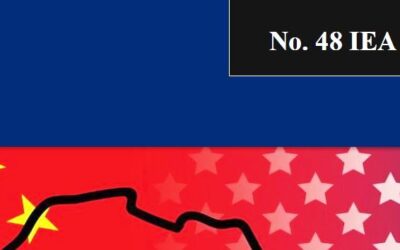The Institute of Economic Affairs, IEA Ghana is calling for a more comprehensive monetary policy in order to ensure low and stable prices and interest rates which will enhance economic growth and job creation.
The IEA made this call at a roundtable discussion on Tuesday, January 25, 2022 under the theme “Making Monetary Policy in Ghana More Fit-For-Purpose.” The roundtable discussion brought together experts from banks, academia, development partners, industry players, media, Civil Society Organisations among others.
Director of Research at the IEA and the main speaker of the event, Dr. John Kwakye in his presentation justified the need for such a discussion at this time.
According to the Director of Research at the IEA, a careful analysis of the trends of inflation, policy rate, and interest rates in the country has established that the prime objective of Monetary Policy to ensure low and stable prices and interest rate has been elusive hence the need for relook at the Bank of Ghana’s approach. Giving a background of the Monetary Policy Approach used by the Bank of Ghana, Dr. Kwakye who is a former staff of the Central Bank, a former IMF staff and recent member of the Monetary Policy Committee disclosed that the Central Bank adopted its current approach of Inflation Targeting (IT) in 2007 after making use of Monetary Targeting pre 2007.
This approach of inflation targeting, Dr. Kwakye said targets inflation directly unlike the Monetary targeting and was motivated by the link between the Money Supply (MS) and inflation.
However, this approach Dr. Kwakye believes has some inherrent weakenesses hence making the approach ineffective and the objectives of maintain low inflation and interest rate elusive.
“Because Inflation Targeting (IT) that is used by BoG to manage inflation is largely a demand-management tool, it has not been able to deal effectively with entrenched supply or cost undercurrents,” Dr. Kwakye contended.
The Senior Economist is of the view that supply-side conditions such as food prices, fuel prices and exchange rate volatilities that have huge impact on inflation in the country are not considered by the inflation targeting approach of the Bank of Ghana hence questioning the comprehensiveness and the effectivesness of the Central Bank’s approach.
He said, “in particular, food price and exchange rate volatilities have been persistent drivers of inflation, but are not easily amenable to IT. Further, IT has been equally inhibited in dealing with demand pressures that are driven largely by an enduring fiscal deficit bias.”
On the basis of this analysis as well as data from the Ghana Statisitical Service on the drivers of inflation in the country, Dr. Kwakye is advocating for a more multifaceted approach that will tackle the menace of high inflation both from the supply and demand-sides.
According to Dr. Kwakye, a collaborative effort between the Bank of Ghana and the Government would be very crucial in the management of inflation and interest rate in order to propel the economic growth and development that translate into job creation yearned for by the country.
“A more comprehensive approach is needed to stem inflation on a durable basis. The approach should look beyond IT and must involve the collaborative efforts of both BoG and Government and its relevant agencies”, Dr. John Kwakye recommended.






0 Comments